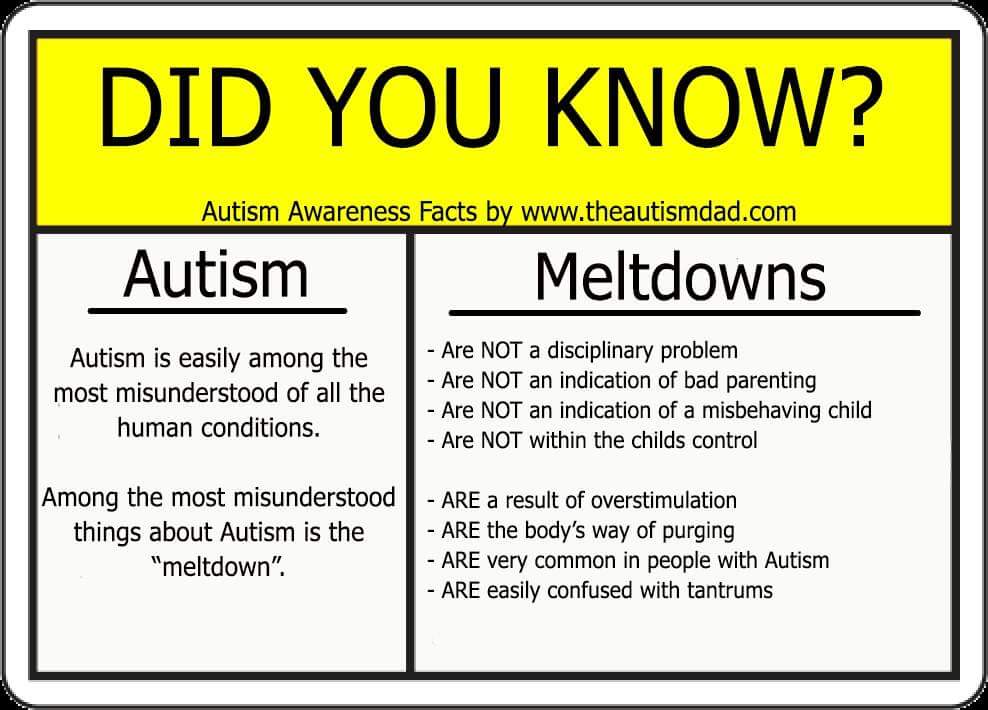

They may be over-sensitive to some senses, under-sensitive to others and often a combination of both.įor example, for someone who is over-sensitive to touch and sound, people brushing past them and a loud announcement at a train station could cause pain and sensory overload, leading to a meltdown.


Many autistic people have sensory differences. Every autistic person is different, but sensory differences, changes in routine, anxiety, and communication difficulties are common triggers. Once you have a clearer idea what may be triggering meltdowns, think about ways you might minimise that trigger. You may find that meltdowns occur at particular times, in particular places, or when something particular has happened. Record what happened before, during and after each meltdown. If your family member or the person you support has meltdowns, identify what is overwhelming for them. Strategies to consider include distraction, diversion, helping the person use calming strategies such as fiddle toys or listening to music, removing any potential triggers, and staying calm yourself.Ī meltdown is a reaction to an overwhelming experience. At this stage, there may still be a chance to prevent a meltdown. They may start to exhibit signs of anxiety such as pacing, seek reassurance through repetitive questioning or physical signs such as rocking or becoming very still. Many autistic people will show signs of distress before having a meltdown, which is sometimes referred to as the “rumble stage”. Ask people to move along and not to stare, turn off loud music and turn down bright lights – whatever you can think of to reduce the information overload, try it. Make space - try to create a quiet, safe space as best you can.Calmly ask them (or their parent or friend) if they’re OK, but bear in mind they’ll need more time to respond than you might expect.Give them some time - it can take a while to recover from information or sensory overload.It can make a world of difference to an autistic person and their carers. If someone is having a meltdown, or not responding to you, don’t judge them. Meltdowns are not the only way an autistic person may express feeling overwhelmed. They may also refuse to interact, withdrawing from situations they find challenging or avoiding them altogether. When a person is completely overwhelmed, and their condition means it is difficult to express that in another way, it is understandable that the result is a meltdown. It happens when someone becomes completely overwhelmed by their current situation and temporarily loses control of their behaviour. This loss of control can be expressed verbally (eg shouting, screaming, crying), physically (eg kicking, lashing out, biting) or in both ways.Ī meltdown is not the same as a temper tantrum. If your family member or the person you support has meltdowns, find out how to anticipate them, identify their causes and minimise their frequency.Ī meltdown is an intense response to an overwhelming situation. The public often finds it hard to tell autism meltdowns and temper tantrums apart, but they are very different things. Gift Aid and making your donation go further Our patron, president and vice presidents Parent to Parent Emotional Support HelplineĪdult residential and supported living service vacancies


 0 kommentar(er)
0 kommentar(er)
